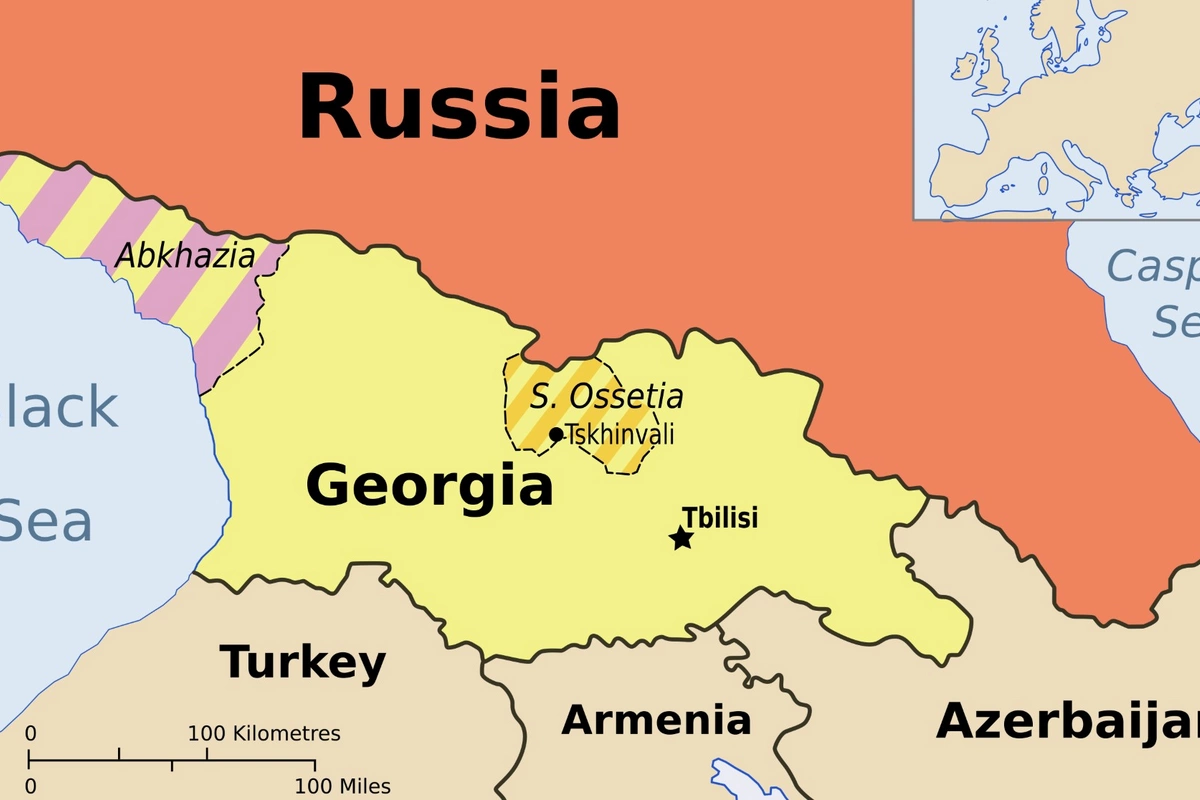
Photo: Wikipedia
Despite resisting Russia's pressure to adopt a controversial investment plan, Moscow appears to have gained the upper hand over the separatist region of Abkhazia through a blend of coercive tactics and diplomatic maneuvers. The new de facto leadership in occupied Abkhazia has grown less hostile to the prospect of a major agreement with Russia.
Over recent months, Abkhazia-a region occupied by Russia and internationally recognized as part of Georgia-has been mired in a political and energy crisis. Amid shifting geopolitical dynamics in the South Caucasus, the separatist region's vulnerability has only deepened.
Since November, severe electricity restrictions have been imposed in Abkhazia due to an acute energy deficit. The root cause lies in the low water levels at the Enguri hydroelectric dam, which straddles the boundary between Abkhazia and the rest of Georgia. Typically, deficits in electricity production at Enguri were supplemented with energy supplies from Russia. However, the current arrangement covers electricity costs only through December 2024. With no alternative energy sources, Abkhazia will require new agreements with Russia starting in January 2025.
Adding to these woes, Moscow has been selling electricity to Abkhazia at market prices, exacerbating the hardships faced by ordinary Abkhazians. The separatist authorities can only afford to pay for nighttime electricity flows from Russia, costing 8-10 million rubles per night. Daytime electricity, which costs around 30 million rubles, remains unaffordable, leaving residents with just three hours of power during the day.
Abkhazia's electricity crisis stems from deeper structural issues, particularly widespread illegal cryptocurrency mining. Local media reports suggest that unregulated mining farms consume approximately 1 million kWh of electricity daily. While the Enguri dam produces 1.8 billion kWh annually, the region suffers an annual deficit of 700-750 million kWh. Notably, losses from cryptocurrency mining amount to 1.6 billion kWh, nearly matching Abkhazia's entire energy production.
Efforts to address this issue have encountered resistance. Residents proposed shutting down the internet at night to curtail illegal mining, but this was opposed by internet providers, who cited significant financial losses. Moreover, cutting off internet access would disrupt essential services such as gas stations, ATMs, and retail operations.
Other mitigation measures, such as closing schools and kindergartens to save electricity, faced logistical challenges, particularly due to a lack of fuel for generators. While educational institutions remain open during warmer weather, the region's fuel shortage-exacerbated by the lack of supplies from Russia-leaves Abkhazia with no reserves of its own.
Despite tensions, the possibility of restoring cooperative relations between Russia and Abkhazia remains. Russian officials have stated that the investment agreement and social support measures are still on the table for negotiation. However, the new de facto leadership in Abkhazia has shown reluctance to re-engage on these controversial agreements.
This hesitation underscores a complex dynamic. By appealing to Moscow for electricity and social aid, Sokhumi signals its intent to maintain close ties with its patron. Yet, given the power disparity, Abkhazia's ability to resist Russian demands appears limited.
In the long term, the interim government in Abkhazia risks losing support, even among those who initially backed the ouster of former leader Aslan Bzhania and rejected the investment agreement with Russia. The worsening crisis may force Abkhaz leaders to capitulate fully to Moscow’s terms. Reports suggest that the de facto leadership has already requested additional support from Moscow, likely paving the way for concessions on key issues.
Russia has skillfully employed a mix of economic and political levers to assert its dominance. Unlike broader geopolitical maneuvers involving Tbilisi or Western powers, Moscow’s focus on Abkhazia hinges solely on the region's compliance with laws that advance Russian interests in the South Caucasus. If Abkhazia’s leadership delays discussions on the investment agreement, Moscow is poised to escalate its pressure tactics.
Share on social media